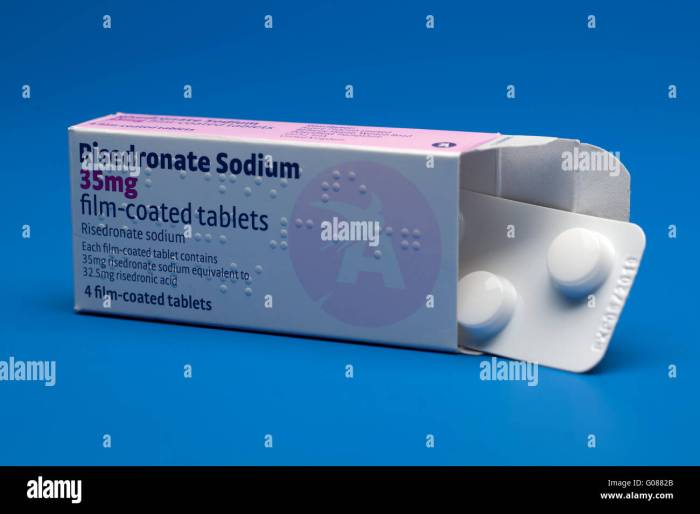Risedronate, a powerful medication, stands at the forefront of bone health management. This drug, a member of the bisphosphonate family, plays a vital role in addressing a range of bone-related conditions, most notably osteoporosis and Paget’s disease. Its unique mechanism of action, targeting bone resorption, makes it a valuable tool for strengthening bones and reducing fracture risk.
Risedronate works by inhibiting the activity of osteoclasts, the cells responsible for breaking down bone tissue. This process helps to preserve existing bone mass and encourages the formation of new bone, ultimately improving bone density and overall skeletal strength. The effectiveness of risedronate has been extensively studied and documented, making it a cornerstone of treatment for individuals at risk of fractures and those seeking to maintain strong bones.
Risedronate

Risedronate is a medication that belongs to a class of drugs called bisphosphonates. It is primarily used to treat osteoporosis, a condition that weakens bones and increases the risk of fractures. Risedronate works by slowing down the breakdown of bone tissue, which helps to increase bone density and strength.
Chemical Structure and Properties, Risedronate
Risedronate is a synthetic bisphosphonate with the chemical formula C2H10N2O7P2. It is a white, crystalline powder that is practically insoluble in water. Risedronate is a potent inhibitor of bone resorption, which is the process by which bone is broken down.
Mechanism of Action
Risedronate works by attaching to hydroxyapatite crystals, the main mineral component of bone. This attachment prevents the activity of osteoclasts, the cells responsible for bone resorption. By inhibiting osteoclast activity, risedronate slows down the breakdown of bone tissue, leading to an increase in bone density and strength.
Risedronate stands as a powerful ally in the fight against bone disorders. Its targeted action on bone resorption, coupled with a well-established safety profile, makes it a valuable option for individuals seeking to strengthen their bones and reduce fracture risk. However, it is crucial to understand that risedronate is a prescription medication, and its use should always be guided by a healthcare professional. Proper patient education and adherence to prescribed regimens are essential for maximizing the benefits and minimizing potential risks associated with risedronate therapy.
Risedronate is a medication commonly used to treat osteoporosis, a condition that weakens bones. It works by slowing down the breakdown of bone, which helps to increase bone density and reduce the risk of fractures. While risedronate focuses on bone health, it’s important to remember that treating bacterial infections often requires a different approach. For those needing an antibiotic, augmentin tablet might be a suitable option.
Returning to risedronate, it’s crucial to discuss any concerns or questions you may have with your doctor before starting this medication.